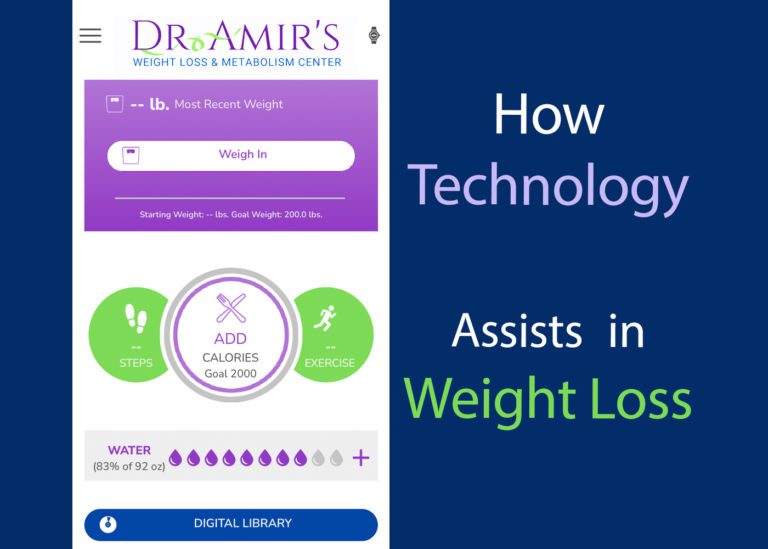Weight Loss Before Orthopedic Surgery
For some patients, weight loss before orthopedic surgery may be necessary to ensure the best possible outcomes. Orthopedic surgery is a branch of medicine that focuses on treating injuries and disorders of the musculoskeletal system, which includes bones, joints, muscles, ligaments, and tendons. This type of surgery can help patients manage a wide range of conditions, from fractures and sprains to arthritis and degenerative joint disease.
Here are some reasons why patients may need to lose weight before orthopedic surgery:
Reducing the Risk of Complications
Patients who are overweight or obese may be at higher risk for complications during and after surgery. For example, excess weight can put extra stress on the joints and bones, making it more difficult for the surgeon to operate. Additionally, overweight and obese patients may be more likely to experience complications such as infections, blood clots, and delayed wound healing. By losing weight before surgery, patients can reduce their risk of these and other complications.
Improving the Surgical Outcome
Orthopedic surgery can be challenging, and patients who are overweight or obese may face additional challenges during and after the procedure. For example, excess weight can make it harder for the surgeon to visualize and access the surgical site, which can affect the accuracy of the procedure. Additionally, overweight and obese patients may experience slower healing times and reduced mobility following surgery. By losing weight before the procedure, patients can improve their overall health and increase the likelihood of a successful surgical outcome.
Reducing Stress on the Joints
For patients with joint problems such as arthritis or degenerative joint disease, losing weight can be especially beneficial. Excess weight puts extra stress on the joints, which can exacerbate pain and inflammation and make it more difficult to manage these conditions. By losing weight before surgery, patients can reduce the stress on their joints and improve their overall joint health.
Challenges Facing People Waiting for Orthopedic Surgery
Losing weight before orthopedic surgery can be a challenging process, especially for patients who are waiting for joint replacement surgery. Many patients who need orthopedic surgery may have limited range of motion and find physical activity difficult or even painful, which can make it harder to lose weight through exercise. This can be particularly challenging, as physical activity is one of the three pillars of weight loss, along with diet and resting metabolism.
When physical activity is limited, more emphasis needs to be placed on improving the diet and raising resting metabolism. This means that patients need to focus on consuming a healthy and balanced diet that is low in calories and high in nutrients. This can be achieved by incorporating more fruits, vegetables, lean protein, and whole grains into the diet, while reducing the intake of processed foods, sugary drinks, and unhealthy fats.
In addition to improving the diet, patients can also work with their healthcare provider to raise their resting metabolism. This can be done through various methods, such as building muscle mass through resistance training, increasing daily movement and activity levels, and incorporating more high-intensity interval training into their exercise routine.
Losing weight before orthopedic surgery can be a tricky process, but it is important for patients to work with a healthcare provider who specializes in weight management and bariatric care. By developing a personalized weight loss plan that takes into account the patient’s individual needs and limitations, it is possible to achieve safe and effective weight loss, improve overall health, and prepare for a successful orthopedic surgery.
“By losing weight before surgery, patients can reduce their risk of these and other complications.”
Weight Loss Remedies for Orthopedic Patients
For people who have limited range of motion and cannot engage in regular physical activity, losing weight can be a challenge. However, there are several other approaches that can be used to achieve weight loss goals.
One option is meal replacement. Meal replacement products are designed to provide all of the necessary nutrients while reducing the overall calorie intake. They come in a variety of forms, including shakes, bars, and soups. These products can be used as a substitute for one or two meals a day, providing a low-calorie option that still meets the body’s nutritional needs.
Another option is lifestyle interventions. These can include changes to daily routines and activities, such as increasing daily movement and activity levels, improving sleep habits, and reducing stress levels. These interventions can help improve overall health and well-being, and contribute to weight loss.
Changes to the diet can also be effective for weight loss. This can involve reducing the intake of processed foods, sugary drinks, and unhealthy fats, while increasing the intake of fruits, vegetables, lean protein, and whole grains. Small changes to the diet can add up over time and lead to significant weight loss.
In some cases, weight loss medication may be recommended. This medication works by suppressing the appetite or blocking the absorption of fat in the body. It is important to note that weight loss medication should only be used under the guidance of a healthcare provider.
Regardless of the approach, it is important to work with a bariatrician, a specialist in weight loss medicine. A bariatrician, or weight loss doctor, can help develop a personalized weight loss plan that takes into account the individual’s needs and limitations. They can also monitor progress and adjust the plan as needed to ensure safe and effective weight loss.
Dr. Amir’s Weight Loss and Metabolism Center
Being overweight or obese can have a significant impact on the outcome of orthopedic surgery. By taking steps to reduce body fat, and address related health problems you can help to improve the outcome of your surgical procedure. At Dr. Amir’s Weight Loss and Metabolism Center, we understand that losing weight can be challenging, especially for those with joint injuries, and we’re here to help. We work with you to create personalized weight loss plans that are tailored to each individual’s needs. We use the latest in medical technology, including body composition analysis and metabolic testing, to ensure that our patients are losing fat and not muscle. We also offer a variety of weight loss techniques, including meal replacement, appetite suppressant and lipotropic medication and lifestyle interventions.
Our goal is to help patients of all ages achieve long-term weight loss success and improve their overall health and well-being. If you’re ready to take the first step on your weight loss journey, we invite you to visit our booking page to schedule your first consultation. Don’t wait, visit us now and let’s work together to achieve your weight loss goals.







